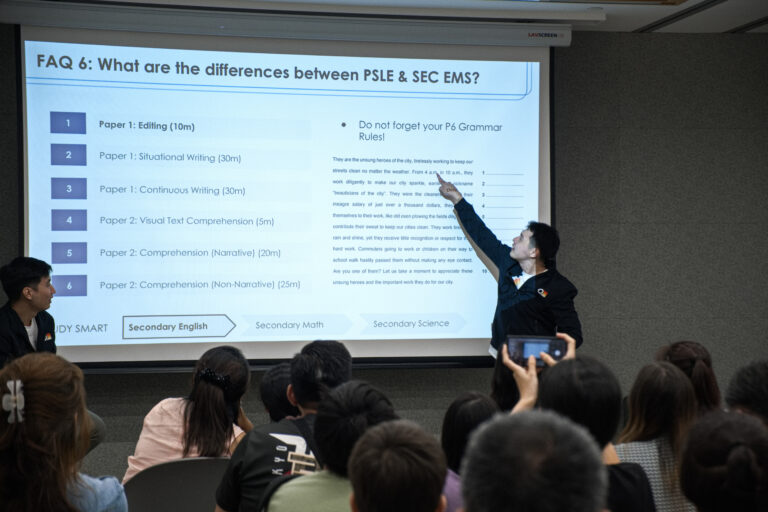
The excitement of a child’s first day of school is palpable, almost tangible in the air. It is a momentous occasion, filled with anticipation, nerves, and boundless energy. As the sun rises on each school day from thereon, it also casts a long shadow over parent-child relationships. The battle between parent and child ensues. Let’s be candid here, who would not love to have a child who excels academically? Every child has potential right? But at what cost?
Academic stress affects both parties in profound ways. Watching them struggle with academic pressure can evoke feelings of helplessness, guilt and frustration. The heavy sense of responsibility for their academic success leads to heightened stress levels and strained interactions. Over the years, my bond with my first-born was tested time and time again, but academic stress only made up a slice of that pie.

Mother’s Day 2024 was a quiet dine-in. I had just stepped out of the war-zone that was my younger child’s first WA (weighted assessment) and was way too tired to step out for any celebration. With peace finally restored, until the next school examination, I was more than content with the gift of a packet of Chrysanthemum tea bought from the school canteen that my son had proudly presented to me a few days earlier. The next gift however, brought tears to my eyes. Along with a carefully crocheted whale, my first-born handed me a hand-written letter. A timely reminder of what was truly important and to be cherished- my bond with my children.
In that letter, my 22 year old expressed how much she loved me and how blessed she felt to have me as her mother. But the tear-jerker was this short line, ‘..you are my best friend… thank you for always respecting me…”
As parents, we are called to make decisions and set the tone for our children. Being an educator, I have also watched how fragile the recipients who bear the consequences of these decisions are. I grew up in a time where children were seen but not heard and that we were living trophies of parental success. However, times have changed. In this day and age where mental and emotional wellbeing of the younger generation are often discussed in hushed distressed tones, parents of today need a different perspective. Of course we want our offspring to have the brightest future possible, to have all doors open to them. At the same time, being a parent also means being keepers to the other aspects of their growth. It is a daunting task to juggle the achievements of both academic success as well as raise a well-balanced and happy child. I do not claim to have all the answers but I know from experience that it can be done.

Respect them. Always remember that your child is a person in their own right. How we treat them and react to them will directly affect how they see themselves.
If a fellow colleague did or said something you felt was out of line, would you openly berate them in an attempt to prove you were right? Why not? Your child is not a slighter version of a human being just because of their age or size. If anything, their emotions are more amplified than an adult having not been desensitised by the comings and goings of decades lived. It is important for them to know that their opinions are valued and that their voice matters. This can motivate them to engage more actively and take on challenges with a positive mindset. When I get lost in the fray with any of my children, they call me out on it. It is never disrespectful with either tone nor choice of words and I do not think that it is beyond a parent to apologise for acting on impulse. After all we too, like our kids, are but human. So we mend fences and get on with life having averted what could have been a regretful unpleasant and hurtful exchange.
So before hardening that tone or allowing those choice words of upset to leave your lips when you see red crosses on test papers, stop and think. Is this helping? Foster trust instead of fear. Your child will be more open and willing to accept the assistance you want to provide them with.

This encourages effective communication. An ability that is paramount under the duress of academic stress.
The anticipation of knowing that one would receive an earful or a stinging smack is more than enough to stop any child from wanting to share openly with a parent. We are their safe space, their comfort and guide. How many times do we need to hear stories about other children turning to their peers for advice and things go horribly wrong from there? Thankfully, that is something I have not had to deal with both my children. I know I am their first port of call because I do not jump to react quickly. Over the years, I have also had my daughter’s friends ask for my opinion because they felt that they could not share with their own parents. And I feel fortunate that such trust is extended to me so I can help another young person avoid potentially bad situations. Such trust takes time and loads of patience to build. And if we cannot be expected to listen without judgement on something as basic as our child’s academic struggles then we are putting ourselves at risk of being left out of the loop when it really matters.
Hence it is essential to create an open and supportive environment where both parent and child feel comfortable expressing their feelings and concerns.

Next, manage your expectations. Knowing and accepting your child is essential to set realistic goals. Also be ready to celebrate their efforts and progress, regardless of the outcome.
M, my firstborn, was never a high-scoring student with most of her subjects other than English and Literature at both Primary and Secondary school. On her own, she would have only managed to cliche Cs. However, with the tuition classes I provided, she did manage to attain some Bs. Everytime examination results were brought home, she would always glance up at my face to see how I would react before allowing herself to comment on how she felt she had done. There were occasions when I really had to bite my tongue but the want to be sensitive towards her feelings always stopped me. Knowing that one has disappointed a loved one is punishing on its own. It brings out the insipid ‘I’m not good enough’ and this would be yet another dent in a child’s self-esteem. So instead of fretting over what I knew was a losing battle, I redirected my energy and hers into pursuits that she excelled in. I took on an active role in her CCA (which she eventually became chairperson for) as a parent volunteer and encouraged her love for music. The end result was a happy, fulfilled child who accepted herself. That made all the difference in the years to come.
They have their own strengths and weaknesses just like any other grown-up person. Go all out and nurture their interests even if it is not academic. Negativity will always seed self-doubt and we want our children to be able to be confident individuals who have been taught and empowered to make the right choices.
I do not claim to have children who ace all their subjects and who do not also resist the gift of extra tuition and enrichment classes. I have one I still struggle with despite my best efforts but I also have one who helps me keep my eye on the prize. My eldest is finishing her Bachelors and will be applying for a Masters programme soon. The journey to get here will not be remembered by the battle scars of academic stress but by a strong parent-child bond fortified with respect, communication and most importantly, love.
Having said all this, I too recognise the fear of not having done enough. The ‘What ifs’ of not pushing them hard enough and of not being firm enough to make them see my best intentions have made me question myself more times than I would care to admit. But think about it this way, if the foundation is firm, built with unconditional parental support, imagine the dreams that can be built on that alone?
This article was proudly written by Teacher Sharon, a dedicated educator and parent. With firsthand experience in both roles, she offers valuable insights into effective parenting strategies and child development.


